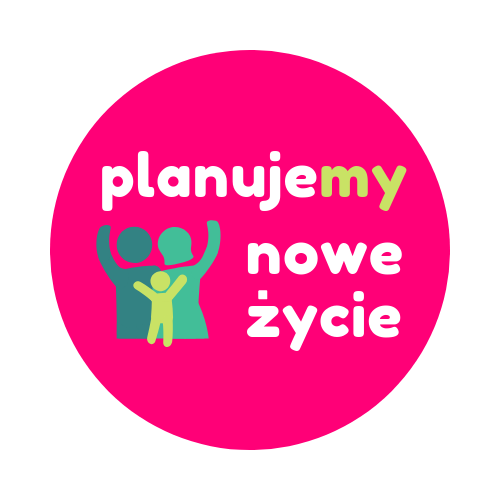A survey conducted by the AMICUS Psoriasis and Psoriasis Foundation as part of the 'Plan a New Life' campaign shows that 26.6% women and approximately 10% men with psoriasis give up further treatment after deciding to become parents.
Psoriasis is a non-communicable, chronic inflammatory disease with a genetic and autoimmune basis. People with it are at increased risk of developing a number of concomitant diseases associated with the metabolic syndrome, including hypertension, dyslipidaemia, obesity and type 2 diabetes.
AMICUS Psoriasis and Psoriasis Foundation conducted a survey on 'Parenting and procreation in the context of psoriasis'. The survey inaugurates the 'We Plan a New Life' campaign.
- I have heard many stories from our residents about planning a pregnancy, dreaming of having offspring. This is natural. People with psoriasis have many concerns. Most often about inheriting the disease. The risk of inheritance is about 14 % if one parent has psoriasis, 41 % if both parents have the disease. - says Dagmara Samselska, President of the Foundation. - I also often hear about stigma-related limitations - parents with psoriasis are afraid to go to the swimming pool or playground with their children for fear of comments or unpleasant stares. However, one of the most difficult situations occurs when a parent with psoriasis foregoes treatment for fear that the treatment may negatively affect the child's prenatal development. The psoriasis is exacerbated affecting the whole body, but also the later parental role. A similar situation occurs when the mother does not undertake therapy because she wants to breastfeed for as long as possible. These are often dramatic choices... That is why, as a Foundation, we have decided to take up the topic of psoriasis in the context of parenthood and are launching the "We are planning a new life" campaign.
More than one million Poles suffer from psoriasis. A significant number of women develop psoriasis at childbearing age (18-45 years), the average age of diagnosis and treatment for women with psoriasis is 28 years (peak incidence 15-30 years and 50-60 years). The overlap between these two periods presents a challenge in terms of selecting the appropriate treatment and family planning aspect.(1)
- My impression is that doctors do not have the right knowledge at the moment and rather advise against offspring. - says Anna, a participant in the study.
The AMICUS Foundation survey involved 1023 people affected by psoriasis, of which more than 67% respondents have moderate to severe psoriasis, i.e. psoriasis that requires general treatment or biological therapy. In approximately 80% of the women surveyed, psoriasis appeared before conception, in 2.6% during pregnancy, in 7.2% up to one year after childbirth.
It is estimated that women of childbearing age represent approximately 15-20% of the total population with psoriasis.(2). 82% women experience at least one pregnancy in their lifetime. Almost 45% pregnancies are unplanned/unintended.(3) Approximately 65,000 to 107,000 births occur each year worldwide in women with psoriasis, of which 9,000 to 15,000 are moderate to severe.(4)
The study, 'Parenting and procreation in the context of psoriasis', found that, due to the risks posed by most of the therapies available to date, 26.6% women and approximately 10% men with psoriasis dropped out of treatment after deciding to try to have a child. Approx. 60% female participants and 55% male participants did not discuss procreation plans and child-safe psoriasis therapy with their doctor. Given the inflammatory nature of the disease, forgoing treatment can result in serious cardiovascular consequences or metabolic syndrome.
- I was most afraid of a rash during breastfeeding because it's a big strain on the body and I wasn't wrong. I gave birth to three children. A few days after each birth, I started to break out. I had a lot of changes. Despite this, I breastfed all my children. - recalls Joanna.
The burden of psoriasis is particularly high in women, who report lower levels of happiness (women: 18.5%; men: 11.3% - lower than the general population) and are more likely to experience stress (women: >60%; men: 42%), loneliness (women: 25-28%; men: 19-24%), stigma (feeling stigmatised, women: 93.2%; men: 78%) and reduced sexual activity compared to men (women: 33%; men 19%).(1)
Some of the men taking part in the AMICUS Foundation study, due to their experiences of stigma and physical suffering due to psoriasis, made the decision to give up being a parent out of fear that their child would inherit the disease.
What emerges from the figures quoted is the great need to target those affected by psoriasis. Planning for parenthood, especially by women, is fraught with many fears, and, according to respondents, also with resignation to the desire to have a child or to breastfeed. Parents-to-be are willing to sacrifice their own health for the sake of their child.
– I would like to have more than one child, yet successful therapies actually preclude pregnancy even three years after the end of treatment, which in my case could already mean the menopausal age. - Karolina says.
It is important for women to work with their doctor to determine what treatment is appropriate for them during pregnancy and breastfeeding and to consider precautions.
Find out more at http://luszczyca.edu.pl/
- Gottlieb AB, Ryan C, Murase JE. Clinical considerations for the management of psoriasis in women, International Journal of Women's Dermatology, http://doi.org/10.1016/j.ijwd.2019.04.021
- Bobotsis R et al. Psoriasis and adverse pregnancy self-evidence: a systematic review of observational studies, Br J Dermatol. 2016 Sep.;175(3):464-472
- Sedgh G, Singh S, Hussain R (2014), Intended and Unintended Pregnancies Worldwide in 2012 and Recent Trends. Studies in Family Planning, 45:301-314. http://doi:10.1111/j.1728-4465.2014.00393.x
- Kurizky PS, Ferreira CC, Nogueira LSC, Mota LMH. Treatment of psoriasis and psoriatic arthritis during pregnancy and breastfeeding. An Bras Dermatol.2015; 90(3):365-75.
(AMICUS Psoriasis and Psoriasis Foundation press release)

